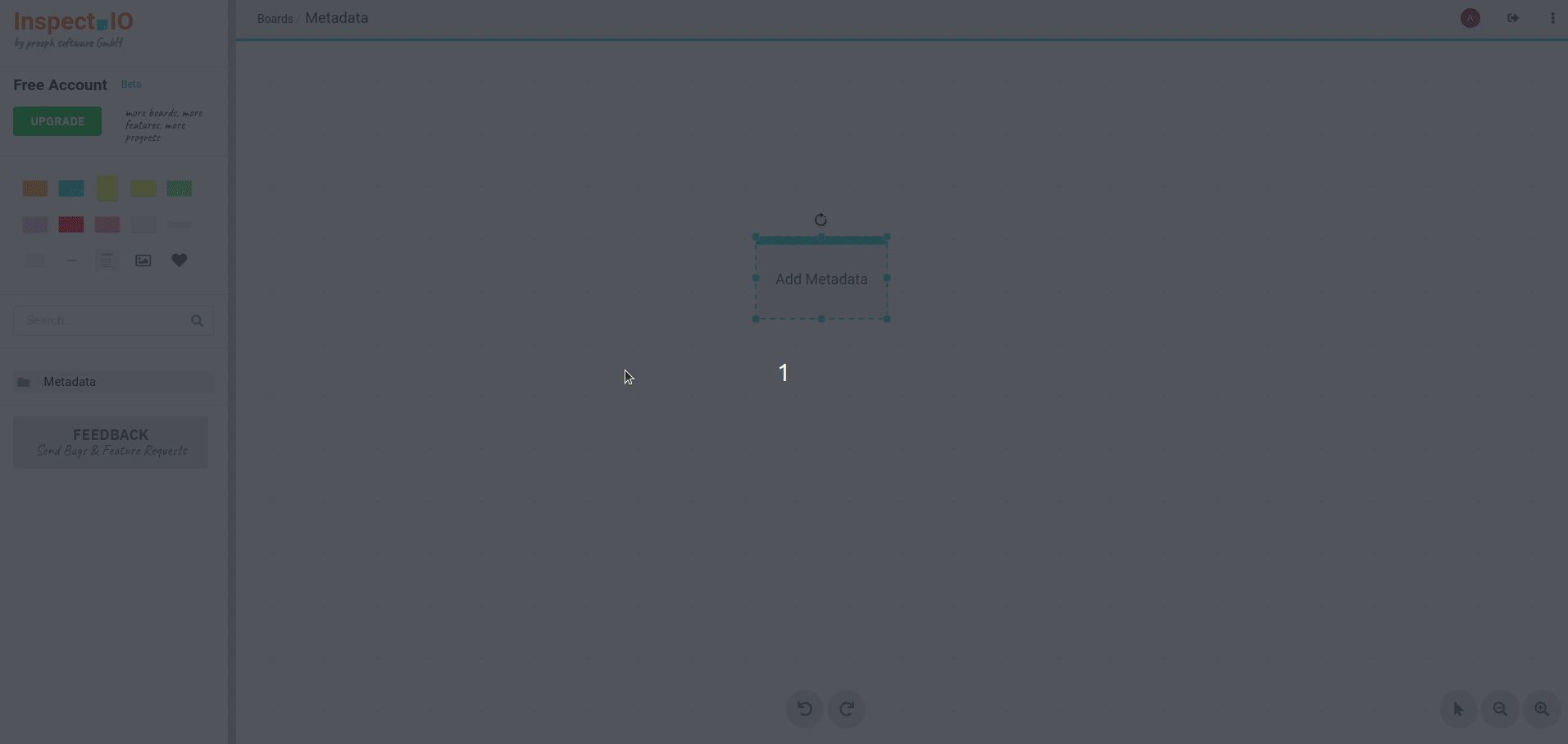-
Notifications
You must be signed in to change notification settings - Fork 1
Card Metadata
InspectIO bridges the gap between problem and solution space. Start from a High Level Event Storming and walk all the way down to a detailed solution. Therefor, InspectIO offers advanced documentation features like Metadata support for most of the elements available on a board.
Metadata is useful to document technical details like message schema or information for the code generator (@todo: add link), without distracting non-technical team members, when working together on a board.

You can open the metadata sidebar from the context menu of a card (or other elements), the top menu or by pressing Ctrl+M (Cmd+M on Mac). The sidebar shows some information and you can edit the card's metadata. If a template is set (see below) for the selected card's type and no metadata is set so far, the template is loaded into the editor.
Note: Changes are saved automatically and synchronized with your remote peers.
It's ok to duplicate cards on a board to improve readability. Too many arrows make it look chaotic. But when it comes to metadata, you want to edit it in one place. We got you covered! InspectIO detects similar cards automatically and ask you to apply changes to all of them.

Lookup is based on card type and name. For the latter it is important to note that InspectIO treats everything above the first horizontal ruler as the name of a card. This allows you to add notes, examples and other information that should be visible for all.
Cards can be connected to document a message flow e.g. a command (blue card) produces an event (orange card). Connections are listed in the metadata sidebar and a click on one moves focus to it.

Metadata templates can be set per card type for each board. InspectIO also ships with some default templates e.g. a JSON-Schema template for commands (blue), events (orange) and information (green). The default templates also contain information for the code generator like the newAggregate: boolean flag on commands which indicates that a new aggregate is created
The code generator is fully customizable, so are the templates. It's a powerful combination.

So far the template and metadata editor supports JSON syntax. We will add a possibility to switch syntax.
One of the next releases will include a way to quickly copy templates from one board to another.
Join the community chat on Gitter.
No beta user yet? Request access in the community chat.